-
Saving Space with a Tankless Water Heater
Everyone needs a water heater in Jacksonville, but everyone also has a different amount of space to work with. If you consider space a premium, you can save as much as possible by using a tankless water heater. These modern water heaters are more efficient and take up less space, so it’s worth upgrading if your current water heater is on its way out. There are even different kinds of tankless water heaters to choose from, so you should have no trouble finding a place to have yours installed. Continue reading if you’re interested in saving space with a tankless water heater.
There are many reasons why you might want to switch from a standard water heater to a tankless water heater, but they all typically boil down to the fact that a conventional heater has a tank. In addition to wasting heat through standby heat loss, a standard water heater’s tank takes up an unnecessary amount of space. Tankless water heaters don’t have this large basin, because they heat the water as it’s needed. This means these units take up much less space, and as such, they are more versatile when it comes to installation placement.

-
How Water Softeners Can Extend the Life of Your Tankless Water Heater
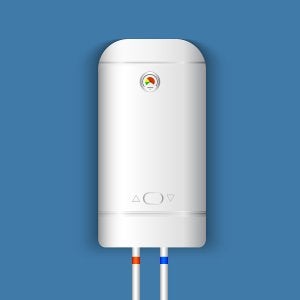 If you have just purchased a tankless water heater in Jacksonville , you already expect it to stick around for many years to come. You can extend the life of your water heater even further by softening your water. Hard water isn’t necessarily bad for you, but it’s not quite desirable for the home. Water softeners combat the problems that hard water brings to your appliances and fixtures, and they can bring your household efficiency up in the process. Keep your appliances in top shape by reading on to see how water softeners can extend the life of your tankless water heater.
If you have just purchased a tankless water heater in Jacksonville , you already expect it to stick around for many years to come. You can extend the life of your water heater even further by softening your water. Hard water isn’t necessarily bad for you, but it’s not quite desirable for the home. Water softeners combat the problems that hard water brings to your appliances and fixtures, and they can bring your household efficiency up in the process. Keep your appliances in top shape by reading on to see how water softeners can extend the life of your tankless water heater.What is Hard Water?
Hard water is water that has too much calcium and magnesium content. It won’t lather readily, and it can leave a scaly residue on your appliances, fixtures, and even the dishes in your dishwasher. A water softener uses an ion exchange process to change the quality of the water by adding sodium to the mix. Sodium interacts with the magnesium and calcium to soften the water and prevent the buildup of scale that could affect your appliances. Your water heater won’t have to work as hard, so it should enjoy a longer working life.
-
Are Tankless Water Heaters Better for the Environment?
If you are seeking new ways to go green in your household, talk to your plumber about the benefits of a tankless water heater installation . A plumber that installs tankless electric water heaters near Jacksonville will be able to provide you with a new hot water heater that meets your household’s demands, while also protecting the environment. By taking the time to replace your old hot water heater with a new, tankless model, you can rest assured that you are doing your part to protect the planet.
A tankless water heater benefits the environment in several different ways. Since tankless water heaters only operate when there is a hot water demand, they consume much less energy than conventional systems. Additionally, tankless water heaters produce fewer carbon emissions than their traditional counterparts. Since a tankless water heater lasts nearly two times longer than a traditional unit, it will also help to free up space in the landfill.
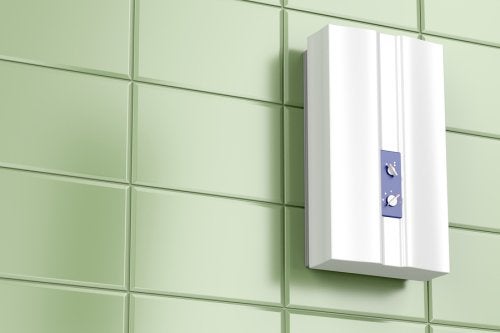
-
Go Green by Installing a Tankless Water Heater
A tankless water heater can dramatically improve the efficiency and environmental impact of your home’s plumbing system. If you are working with your plumber in Jacksonville to choose a new water heater for your residence, you may want to think about making the swap for a brand new tankless water heater unit. With their on-demand performance and clean fuel sources, tankless water heaters are an eco-smart choice for many homes.
There are a couple of different ways that a tankless hot water heater can help you go green. Your new tankless water heater will generate hot water as you turn on your tap. Rather than consuming excess energy in order to keep water heated to a certain temperature all day, a tankless water heater only turns on when it is needed. Along with saving energy and fuel, a tankless water heater may help you cut down on your home’s water use. After learning about the many benefits of going tankless, contact your plumber to discuss your installation options.
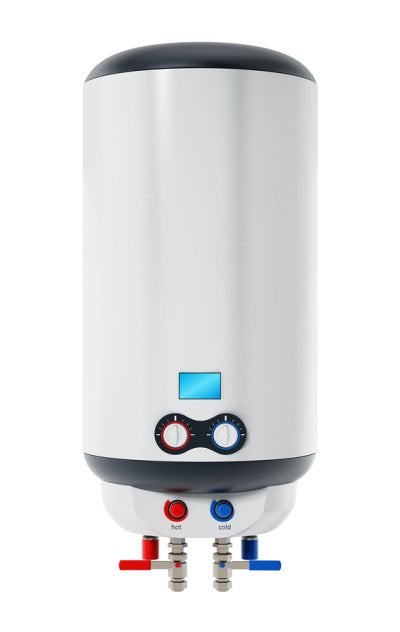
-
When to Consider Re-Piping Your Water System
When it comes to re-piping your home’s water system , it’s ideal to do this before a major problem occurs and causes significant damage to your home. Read on to learn when you should consider calling a plumber near Jacksonville about re-piping.
The first consideration when it comes to replacing your pipes is their age. To determine the age of your plumbing, consult your home inspection report or hire a plumber to evaluate the system. Different plumbing materials have different lifespans, so ask your plumber if your pipes may be past their prime. If you have lead piping, then you should definitely consider re-piping because this type of system can leach lead into your water.
Some other signs that mean it may be time for re-piping include leaky pipes, a recurring need for water line repairs, indications of corrosion on exposed pipes, and discolored water coming from your tap. If you have noticed any of these issues, then consider calling a plumber to inspect your home’s water system to determine if you’d benefit from re-piping services.
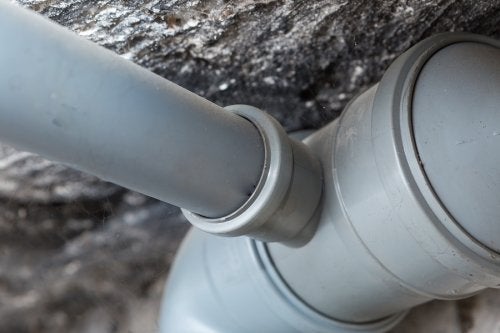
-
Tank vs. Tankless Water Heaters: Which Is Right for You?
Everybody needs a water heater, but now you get to choose between tank and tankless kinds. Although both types can do an adequate job of heating up your water, you’ll need to pick one. A tankless water heater in Jacksonville tends to be smaller, more efficient, and less prone to water damage than a traditional hot water heater, and these factors tend to sway customers in their direction. If you are still debating between tank and tankless water heaters, read ahead and find out which one is right for your house.
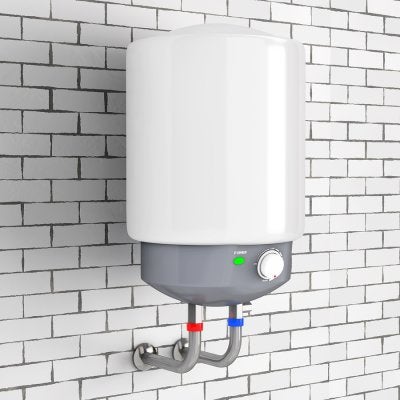
Space
If you don’t have a great deal of space to work with in your home, you might have limited options in terms of hot water heaters. One of the primary advantages of tankless water heaters is that they take up a fraction of the space that a conventional water heater does. Since traditional hot water heaters need the space to accommodate their large tanks, they’re not always the best fit for smaller living spaces. Tankless water heaters can be installed in cabinets and on walls, staying out of the way and letting you maximize your space.
Efficiency
When you have a large container of hot water that isn’t being used, much of the heat will escape into the atmosphere. This is called standby heat loss. Hot water heaters were vulnerable to this kind of heat loss for a long time, but tankless water heaters can address this fallback. Modern units heat your water when you need it, not beforehand. This means that you won’t have a basin of water that needs constant heating, even when it’s not in use. Your tankless water heater will benefit from much greater efficiency thanks to this lack of heat loss.
Potential for Water Damage
Since traditional hot water heaters have tanks and tankless units don’t, traditional units are more prone to leaks. These leaks can lead to water damage in the home, which can in turn contribute to quite a few additional problems. Tankless water heaters don’t present this same kind of hazard, so many people consider them the safer option.
-
Need a Water Heater? Ticking Off the Top Reasons to Go Tankless
If you need a new water heater, then consider installing a tankless water heater in Jacksonville . With a tankless water heater, you can experience greater energy savings, more space in your home, and future savings on water heater repairs. To learn more about these important reasons to choose a tankless water heater, continue reading below.
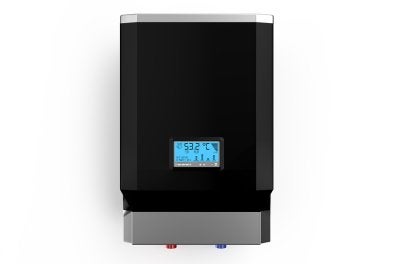
You will save on energy.
Saving energy should be a regular concern, because it reduces damage to the environment, and it reduces your energy bills. By choosing a tankless water heater, you will save significantly on water and energy usage. Tankless water heaters only heat up water when you turn your faucet to the hot setting. Regular water heaters must constantly heat a tank full of water, which requires a vast amount of energy and water usage. With a tankless option, though, you may use up to 50% less energy throughout the year.
You will save on space.
Traditional water heaters require large tanks that take up a fair amount of space in your garage or water heater closet. This space can be put to better use by storing tools or household appliances. Free up a significant amount of space with a tankless water heater that does not require a large tank filled with water. You may also choose a smaller model, called a point-of-use heater, which will heat certain parts of your home. These water heaters are so small that they can be placed under a sink.
You will save on replacements.
Depending on the type of water heater you choose—gas versus electric, for example—you can expect a traditional water heater to last about six to ten years. However, tankless water heaters can last up to ten years longer than traditional models. There are few chances of leaks, sediment buildup, and corrosion, which are all potential damages found in traditional water heaters. Choose a tankless option to avoid these repairs and save on future replacements.
-
Doing Your Part to Conserve Water
Water conservation is a top concern for homeowners around the country. If you are concerned that you may be using excess water at home, now may be the time to consult with your plumber. By performing a kitchen or bathroom remodel near Jacksonville, you will be able to replace your outdated fixtures and appliances with new features that are designed to save water. A new tankless water heater installation can also help you reduce the water that you consume on a daily basis.
Along with working on renovations with your kitchen remodeler, there are also specific plumbing repair procedures that can help to cut back on water waste throughout your household. A pinhole plumbing leak can end up wasting hundreds of gallons of water each month. By taking the time to locate and repair leaks throughout your plumbing system, you will take major steps towards conserving water at home. Your plumber can provide you with additional information about how you can start saving water with your home’s plumbing system.
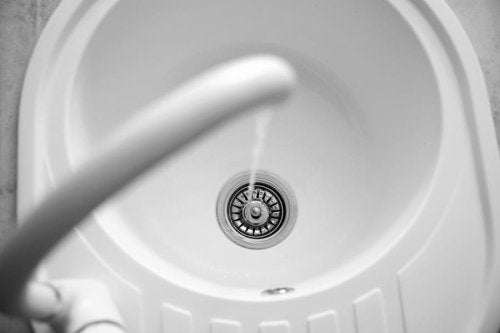
-
What to Do About a Clogged Toilet
There are many types of problems you might deal with when it comes to your plumbing system , from broken water heaters to leaky faucets. Some problems are more serious than others, however, and some you can even handle on your own. If you don’t want to take the time to call your plumber serving Jacksonville to deal with a clogged toilet, consider taking on the task yourself; although it may not be the most glamorous task, it’s not the most difficult either. Take a look ahead to find out what to do about a clogged toilet.
Aside from calling your plumber, you have 3 options when it comes to clogged toilets. The first option is the lazy option: wait a while to see if the water in your toilet has broken down the clog. If another flush doesn’t do the trick, the second option is to try your plunger. Center the rubber part of your plunger over your toilet and push straight down, then pull up. If the plunger is no use either, the third option is to try using an auger. You can use the pointed part of the auger to break through the obstruction and pull it back out of the toilet; just make sure you have gloves.
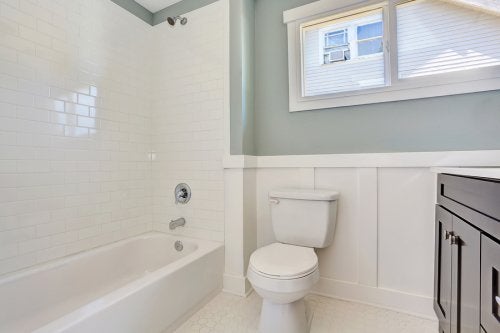
-
How to Choose a New Water Heater
Unless you like taking cold showers or boiling your water to heat it, you’ll need a hot water heater near Jacksonville if you want to live comfortably. The right water heater installation will be an efficient addition to your household that offers enough hot water without taking up too much space. You will also want to choose a model that is known to last for a long time so you don’t have to worry about replacing it in the near future. If your unit has broken or it’s almost time to make an upgrade, read on to find out how to choose a new water heater.

Look for Efficiency
Today’s homes are all about automation and efficiency; they can do more than ever, and manufacturers are constantly finding ways to make it as cheap as possible to do so. This is evident when you take a look at the advantages that a tankless water heater can offer, especially when it comes to energy efficiency. Traditional water heaters are not very efficient because they lose a great deal of energy to heat loss. This is because the heater is constantly working to heat water that might not be needed yet. Tankless water heaters are not susceptible to this standby heat loss, and thus they can pay for themselves in savings over time.
Choose a Size
If you’re going the conventional route, you’ll need to think about how much hot water your family uses when choosing a hot water heater. The higher the water demand, the bigger and more powerful the heater you’ll need, with one exception: the tankless water heater. Since this type of hot water heater doesn’t use a tank, you don’t need to find a large space for it in your home. Some can even be stored under cabinets and used with certain appliances.
Consider Durability
Choosing a new hot water heater is probably not something you’ll want to do on a regular basis, so think your decision through. More efficient models tend to work less intensely, meaning they can last longer. You should also be sure to maintain your heater.
RECENT POSTS
categories
- Uncategorized
- Water Heater Installation
- Tankless Water Heater
- Plumbing Services
- Bathroom Remodeling
- Hot Water Heater
- Plumber in Jacksonville
- Water Heater Repair
- Eagerton Plumbing
- Eco-Friendly Plumbing Repair
- Water Damage
- Plumbing Leak
- Sewer Line Repair
- Infographic
- Clogged Drains
- Kitchen and Bathroom Remodel
- Bathroom Plumbing
- Residential Plumbing Services
- Garbage Disposal
- Toilet Repair
- Water Heater Replacement
- Water Conservation
- Emergency Plumbing
- Commercial Plumbing Services
- Kitchen Design Inspiration
- Kitchen Remodel
- low-flow toilets
- Leaky Faucet
- Conserve Water
- Drain Pipes
- Kitchen Sinks
- Vessel Sink
- Plumbing Problems
- Water Leak
- Commercial Remodeling Contractors
- Drain Cleaning Services
